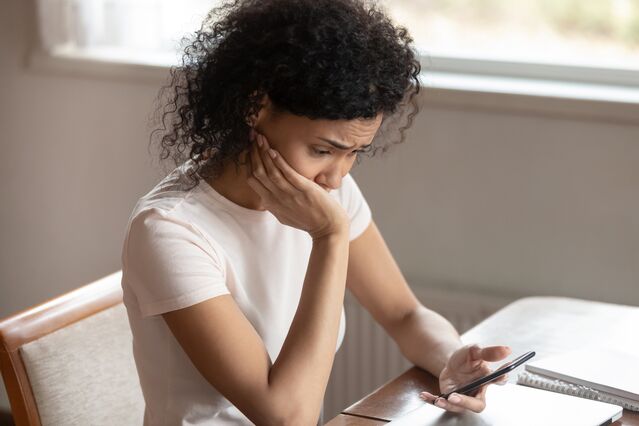Trauma
Are Current Events Weighing You Down?
An approach for managing this difficult time.
Posted September 27, 2022 Reviewed by Abigail Fagan
Key points
- Current events and being “othered” can cause significant psychological distress.
- Telling your story, finding context, and embracing empowerment may be therapeutic.
- Activism can increase one’s sense of agency and be healing.

"The entire week I’ve been at the edge of tears. The Supreme Court sees me as a vessel, not as a person."
"At the festival last weekend, I saw numerous Trump flags around town. As a Brown woman, it made me feel uneasy and on alert."
"Since the synagogue shootings, I haven’t been able to relax during Shabbat services."
It is not uncommon for my patients to talk about the emotional impact of current events and feeling “othered.” I approach my work with some basic tenets: Every person has a right to feel safe, to have a voice, to have equal rights, and to be treated with respect.
The office is a safe space, but the world outside can feel terrifying if your group, your identity, is being targeted. After shootings, you may feel ill at ease at school, while shopping at a local grocery store, or at religious services. Banning books that highlight your heritage and/or your personal truth may feel like an erasing. White supremacist leaflets distributed across a neighborhood may fill you with dread, even if you live elsewhere. Whether or not you are pregnant, having your reproductive rights torn away may feel like a violation.
Feeling unsafe in your country hurts; it is personal and painful. It may be likened to trauma, and lead to distressing symptoms. Ruminating about current events may lead to fears of the future. Nightmares or insomnia, trouble focusing, and hypervigilance may occur. Certain places may be avoided to feel in control and secure. If your world actively silences your concerns, targets you for violence, or treats you as a second-class citizen, it inevitably has a profound psychological effect.
When planning my response to my many patients who have felt unmoored in this way, I have returned again and again to the wisdom of Dr. Lenore Terr, a child psychiatrist who is an expert on childhood trauma. (The approach I will outline is only one of many, and may not work for everyone as each therapy molds to the unique needs of each patient). Dr. Terr reviews three elements crucial to any trauma treatment: abreaction, context, and correction.
Abreaction, she describes, is the process of finding language to tell one’s story, expressing feelings about the trauma at a pace that feels tolerable. Sharing one’s narrative in a safe space, having your experience validated, and feeling understood allows for reconnection and healing. (The patient must be ready and interested in telling their story; forcing this step is not helpful.)
Talking with trusted family or friends, journaling, or creating stories or poetry may be a therapeutic experience outside of the office. While it isn’t part of Dr. Terr’s construct, I also think that creating art may be healing, as a nonverbal nonlinear form of communication.
Context is somewhat self-explanatory; the process of placing the event in context. While the event was undeniably horrible, it is generally an outlier. Terrorism is terrifying because it makes normal activities feel unsafe, but most people are not interested in causing direct harm to others. The patient who felt uncomfortable in their synagogue felt increasingly secure as they returned week after week without incident; the terror slowly subsided. (The context conversation is more complicated when discussing some topics. For instance, microaggressions may cause significant distress and may not be rare experiences. The psychological and physical pain caused by the Dobbs decision is currently ongoing).
The third step is labeled correction. I view correction as an opportunity for empowerment; it is encouraging the individual who has been deeply hurt to raise their voice in response. When faced with helplessness, hopelessness, and despair, speaking up and fighting back increases one’s sense of agency.
There is a long history of activism as one way to manage distress. Just one example: In 1987, as his community was ravaged by fatal infections driven by AIDS, Larry Kramer started the now famous grassroots political organization, ACT UP. ACT UP stands for AIDS Coalition to Unleash Power; the name harnesses the community’s grief to push for a better future through organizing, advocacy, and legislation.
More recently, Matt Gaetz, a Congressional representative from Florida, commented after Roe was overturned, “Why is it that the women with the least likelihood of getting pregnant are the ones most worried about abortions? Nobody wants to impregnate you if you look like a thumb.” It was insult added onto profound injury. Olivia Julianna, a now famous Gen Z activist, took the script and flipped it. Amplifying the horrific comments on social media, she raised over two million dollars for abortion funds. She doubled down and took power back, for herself and for everyone who donated.
Smaller actions can also be therapeutic. Art and writing may now be used to send a message. Rallies and registering voters on campus may be a way to amplify power. I’ve known individuals who have written letter after letter, adorned with washi tape and addressed with calligraphy pens, encouraging people to vote. I’ve seen the power of starting a giving circle, with donations focused on flipping a state legislature to protect women’s reproductive rights, for example.
For every voice that is being silenced, for every individual who feels unsafe, there is a group to join that will provide community and a way to move forward. Claiming space together and living with pride is also a form of social action.
There are moments in a democracy when the vote can be a way to raise one’s voice, a way to be heard and to be seen. For patients, and also for the therapists who have been shouldering the stories of the last several years, political involvement may act as one form of correction, both as offense and defense. There is an opportunity for healing just by becoming involved, in whatever way works for that individual. Standing up, speaking out, and casting your vote after feeling silenced or diminished, may be a therapeutic opportunity for those who have been injured.
References
Terr, L. (2008). Magical Moments of Change: How Psychotherapy Turns Kids Around. New York: W.W. Norton &Company.




